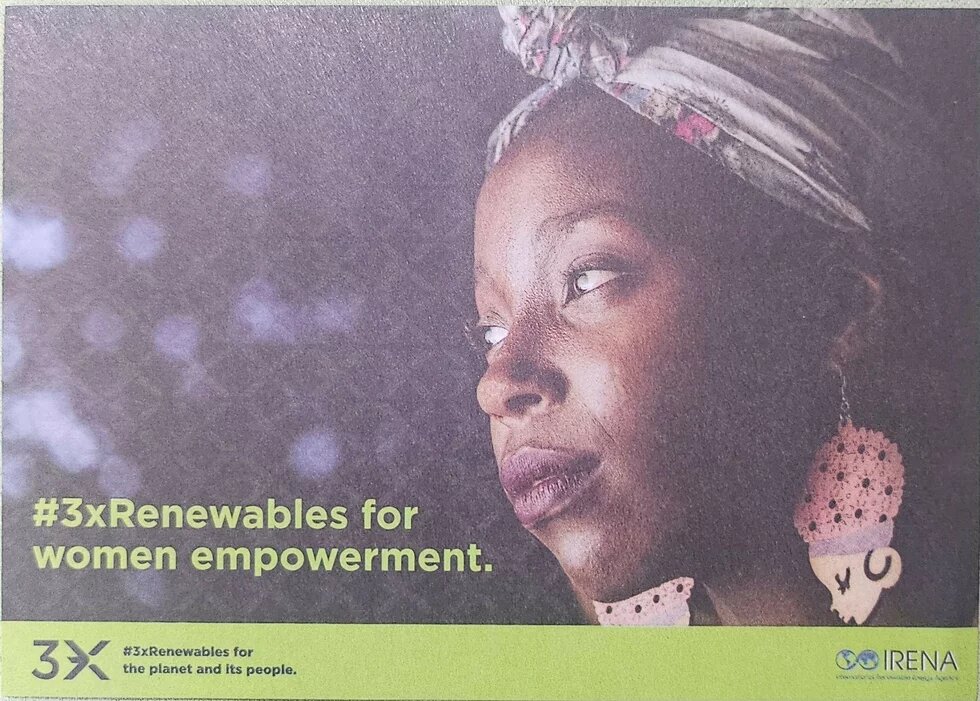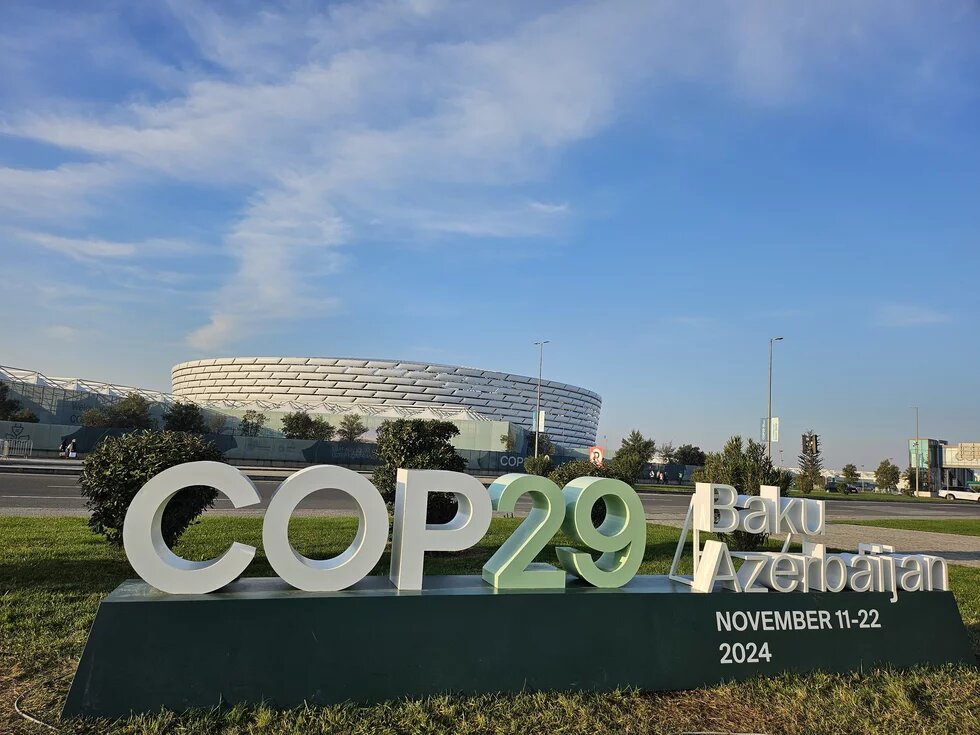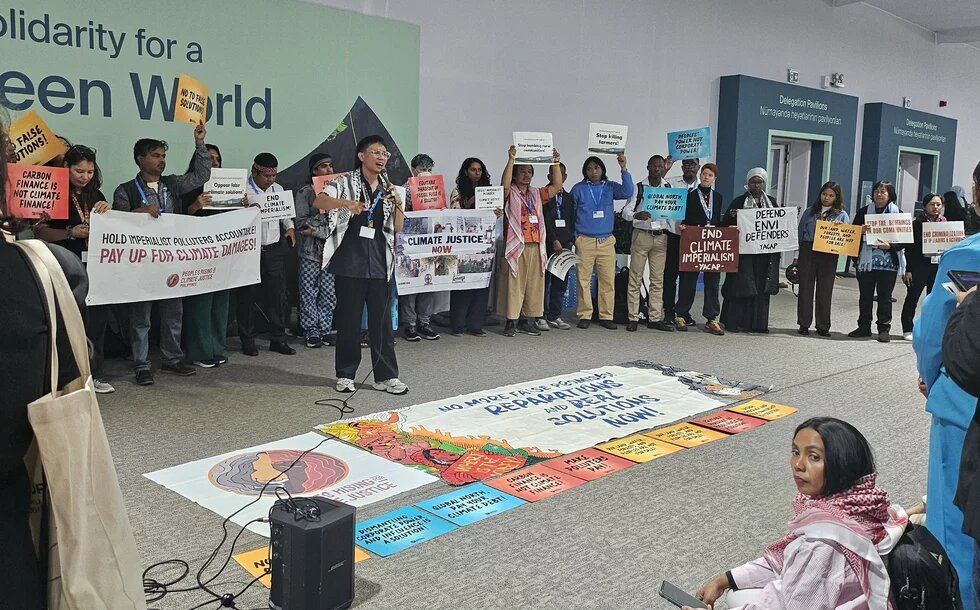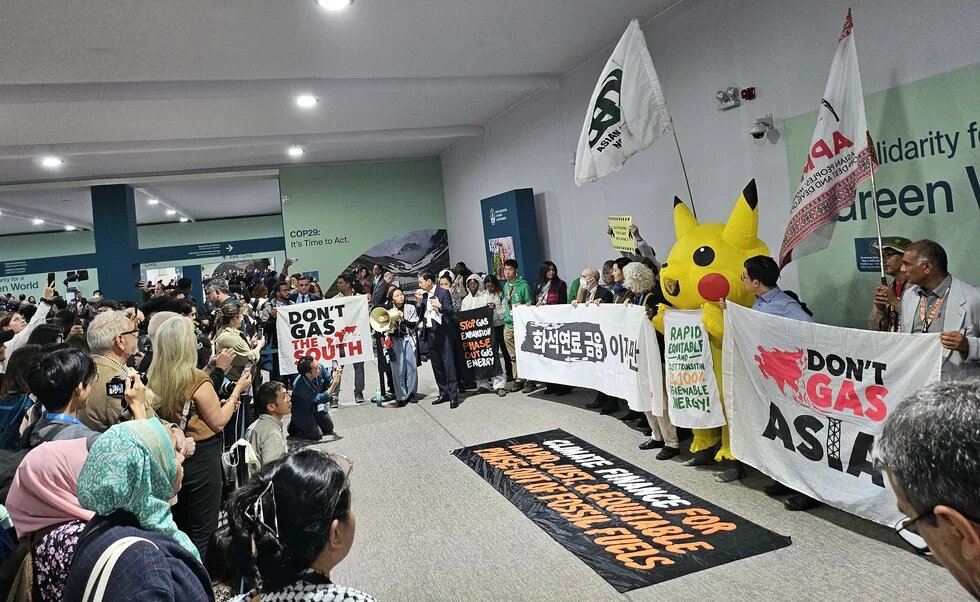

The recently concluded COP29 summit in Azerbaijan brought hope and frustration to the global stage of climate action. With its ambitious goal of tripling renewable energy by 2030, the conference was a platform for advocacy, debate, and reflection on the future of our planet. Yet, among these high hopes, the negotiations were overshadowed by the persistent influence of fossil fuel stakeholders, raising critical questions about the feasibility and fairness of global climate finance. This dilemma is not just an environmental issue but a matter of survival and justice, particularly for nations in the Global South.
One of the key outcomes of COP29 was the renewed emphasis on renewable energy, driven by international bodies like the NDC Partnership and the International Renewable Energy Agency (IRENA).1 These organizations championed the need to accelerate renewable energy deployment and integrate advanced technologies like artificial intelligence to optimize energy systems. However, this ambitious vision was hindered by inadequate financial commitments from developed nations. While the emphasis on renewable energy at COP29 felt promising, it was also bittersweet. From my work in renewable energy, I have seen how financial gaps can hinder the deployment of solar systems in underserved areas, making this a critical area for action. Civil society representatives from the Global South rightfully criticized the persistent gap between ambition and resources, indicating how much these disparities undermine the conditional Nationally Determined Contributions (NDCs) of many developing countries.
From my perspective as a renewable energy engineer, I believe tripling renewable energy capacity by 2030 is feasible if we consider scalable solutions that fit different needs and resources. For example, AI-integrated solar system management can improve efficiency, yet its cost and accessibility remain major roadblocks for countries like Palestine.
High hopes this time round for a new financial framework from 2025 onwards to replace the USD 100 billion annual pledge quickly collided with reality. Estimates of yearly investment needs by 2030 varied, ranging from USD 1.55 trillion to USD 6.5 trillion, and even as high as USD 9 trillion.2 However, negotiations quickly revealed deep divides over funding levels, contribution types, and the expected donor base.
The final compromise—a USD 300 billion annual target and a broader call to mobilize USD 1.3 trillion by 2035—drew fierce criticism from developing countries and climate NGOs,3 with some developing nations even briefly walking out of negotiations and India delivering a scathing public rebuke (Centre for European Policy Studies).4 For many, the new target is both insufficient and vague.
Despite attempts to throw everything out during the negotiations, three core obstacles persist. First, it will be challenging to substantially scale up grant-based financing, which comprised only 28% of public climate finance in 2022, while most of the remainder consisted of loans. Donors are facing financial recessions and increased trade tensions, and the US is expected to withdraw from the Paris Agreement once more.
The role of petrostate leaders added to the complexity. Countries such as Saudi Arabia contributed to blocking stronger language on the phasing out of fossil fuels. Their influence at COP29 illustrates the deep-seated challenges in aligning global decarbonization efforts. The failure to advance commitments made at COP28 regarding fossil fuel phase-out and tripling renewable energy capacity was a significant setback. Such actions not only stall progress on climate mitigation but also undermine the credibility of the COP process itself.
For the Global South, COP29 highlighted the promise and the peril of the current climate negotiation framework. Nations of the Global South face disproportionate risks from climate impacts; they struggle with limited financial resources and technological equipment. Civil society representatives suggested using debt swaps and resilience bonds to address the climate finance gap, yet structural inequities in international financing mechanisms persist as a daunting obstacle.
Collaboration among nations in the Global South emerged as a critical theme. By pooling resources, sharing knowledge, and leveraging regional alliances, Global South countries can strengthen their bargaining power in international negotiations. For instance, the African Union’s push for enhanced adaptation funding demonstrated the potential of collective advocacy. Similarly, integrating AI-powered systems into renewable energy strategies was a key topic at COP29. While supporters pointed towards the efficiency gains from AI, critics cautioned against the risks of technological inequities, particularly for nations with limited access to these innovations.
In Palestine, the barriers to renewable energy development are financial, geopolitical, and environmental, underscoring the broader struggles of the Global South. The Palestinian delegation at COP29 emphasized the need for tailored adaptation strategies that address the realities of conflict and restricted access to resources. Renewable energy offers a pathway to resilience, but international collaboration is essential to overcoming barriers such as high costs and restrictive patents on green technologies. These obstacles reflect systemic failures that risk hindering global climate ambitions.
At COP29, Palestinian representatives highlighted the severe impact of the Israeli’s policies on the besieged Gaza Strip, its environment and infrastructure and stressed that these challenges are deeply connected with the global climate crisis. They called for an energy embargo on Israel. Additionally, they urged companies to cease the extraction of gas from Palestinian waters, arguing that such actions exacerbate environmental degradation and hinder Palestine's ability to develop sustainable energy solutions (Business & Human Rights Resource Centre).5 These statements underscore the complex interaction between political conflicts and environmental challenges, pushing the need for equitable climate finance mechanisms that consider the unique circumstances of countries like Palestine. This strengthens the case for equity and justice in climate finance.
As the dust settles on COP29, the path forward demands a recalibration of priorities and strategies. First, there is an urgent need to align financial commitments with the scale of ambition required to meet global climate goals. This includes innovative mechanisms like blended finance models and capacity-building initiatives that empower nations in the Global South. Second, phasing out fossil fuels must be non-negotiable, with strict accountability mechanisms to ensure compliance. Third, integrating advanced technologies like AI should be pursued in a way that prioritizes accessibility and equity.
Resilience and collaboration are key lessons from COP29 for the global south. These regions can turn challenges into opportunities by addressing systemic inequities and encouraging international solidarity. The focus for these nations must be on leveraging collective action to secure fairer financing mechanisms, capacity-building programs, and access to advanced technologies, all of which are vital for achieving climate goals. These efforts are crucial in turning COP30 into a platform for transformative change rather than incremental progress.
As for Palestine, the challenges are uniquely intertwined with geopolitical realities that amplify environmental vulnerabilities. The siege on Gaza Strip, restricted access to natural resources, and ongoing political instability make resilience-building a matter of survival. The call for an energy embargo on Israel and an end to gas extraction from Palestinian waters at COP29 exemplifies the urgent need for equitable climate finance tailored to such conflict-affected regions. Addressing these systemic barriers could empower Palestine and serve as a model for other nations facing similar adversities in the Global South.
The climate finance dilemma encases the broader challenges of global climate action. While COP29 highlighted the potential of renewable energy to transform societies, it also exposed the persistent inequities that hinder progress. The experiences of Palestine and the Global South offer valuable lessons on the importance of justice, collaboration, and inclusive leadership. As the world prepares for COP30, it is crucial to translate these lessons into actionable strategies. Only then can we hope to achieve the ambitious climate goals that our planet so urgently needs.
The path forward from COP29 is clear: collaboration and justice must lead
Footnotes
- 1International Renewable Energy Agency (IRENA). (2024, November). World energy transitions outlook 2024: Summary. https://www.irena.org/-/media/Files/IRENA/Agency/Publication/2024/Nov/IRENA_World_energy_transitions_outlook_2024_Summary.pdf
- 2Organisation for Economic Co-operation and Development (OECD). (2023). Climate finance provided and mobilised by developed countries in 2013–2021: Aggregate trends and opportunities for scaling up adaptation and mobilised private finance. OECD Publishing. https://www.oecd.org/content/dam/oecd/en/publications/reports/2023/11/climate-finance-provided-and-mobilised-by-developed-countries-in-2013-2021_517fec8e/e20d2bc7-en.pdf
- 3United Nations Framework Convention on Climate Change (UNFCCC). (2024, November 24). COP29: UN climate conference agrees to triple finance to developing countries, protecting lives and livelihoods. https://unfccc.int/news/cop29-un-climate-conference-agrees-to-triple-finance-to-developing-countries-protecting-lives-and
- 4Centre for European Policy Studies. (2024, December 10). Yes, COP29 was too little, too late. But it’s a reality we must accept – at least for now. CEPS. https://www.ceps.eu/yes-cop29-was-too-little-too-late-but-its-a-reality-we-must-accept-at-least-for-now/
- 5Business & Human Rights Resource Centre. (2018, May 10). Plundering the sun: The Israeli solar energy industry and Palestinian forced displacement. Retrieved June 19, 2025, from https://www.business-humanrights.org/en/latest-news/plundering-the-sun-the-israeli-solar-energy-industry-and-palestinian-forced-displacement/

